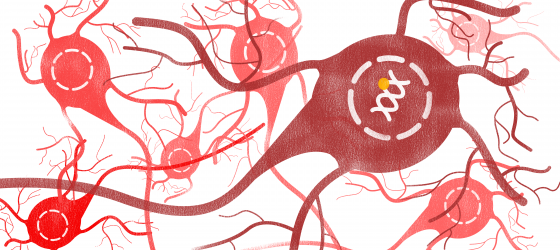Our goal is to characterize the pathogenetic mechanisms underlying neurological disorders associated with neuronal hyperactivity, such as epilepsy, autism, movement disorders, and neurodegenerative diseases. This research line aims to investigate the pathophysiological processes leading to functional and morphological alterations in neurons, affecting cellular development, neuronal excitability, synaptic function and plasticity, circuit interactions, and ultimately behavioral phenotypes
Pathophysiological mechanisms regulating the biogenesis, trafficking, and degradation of synaptic proteins and vesicles, and how their alteration impairs presynaptic terminal physiology, contributing to the onset of neurological disorders.
Scientists: Baldelli P., Valente P., Corradi A., Giovedi S., Fassio A., Michetti C., Onofri F., Sterlini B.
Role of proteins controlling pH homeostasis, chloride homeostasis and autophagy in regulating neuronal development, synaptic vesicle trafficking and neuronal excitability. Effects of altered endocytic pathways and proteostasis on pathogenesis of neurodevelopmental and neurodegenerative diseases
Scientists: Corradi A., Fassio A., Giovedi S., Michetti C., Tsushima Semini H.
Pathogenetic mechanisms underlying paroxysmal kinesigenic dyskinesias and hereditary epilepsies associated with mutations in the proline-rich transmembrane protein 2 (PRRT2) and transmembrane protein 151A (TMEM151A), with particular focus on alterations in neurotransmission and neuronal excitability
Identification of molecular domains important for PRRT2 function
Study of TMEM151A expression and molecular interactors
Scientists: Valente P., Baldelli P., Corradi A., Michetti C., Onofri F., Sterlini B.
Role of APache protein in neuronal development, synaptic function and its functional implications in neurodegenerative diseases
Scientists: Giovedì S., Fassio A.,Tsushima Semini H.
Cytokines and autoimmunity in epilepsy: identification of a biological signature through in vitro electrophysiological approaches, aimed at defining a cytokine profile distinctive of autoimmune epilepsy and assessing its functional impact on neurons and circuits through comparative functional analyses with non-autoimmune epilepsies
Scientists: Baldelli P., Onofri F., Valente P.
Physiological role of beta-amyloid in memory formation mechanisms
Role of cyclic nucleotides cAMP and cGMP in the metabolism of proteins involved in synaptic transmission and neurodegeneration, with a particular focus on beta-amyloid, tau, and prion protein
Antiproliferative strategies in post-surgical therapy for retinal neurodegeneration in glaucoma
Scientists: Ricciarelli R.
